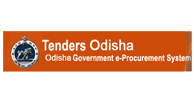The GCF project, titled "Ground water recharge and Solar Micro Irrigation to ensure food security and enhance resilience in vulnerable tribal areas of Odisha", aims to enhance climate resilience and promote sustainable development in the state of Odisha, India.
Aim/Primary Objective of the GCF Project: The primary objective of this project is to enhance groundwater recharge in the community ponds through structural adaptation measures and use of solar pumps for micro-irrigation to ensure water security and food security in the vulnerable areas of the state of Odisha, India.
Sub-Objectives of the Project: The sub-objectives to achieve its primary aim:
- Augmentation of groundwater recharge to improve water table and water quality conditions in rural areas (Gram Panchayat) through the adoption of recharge systems in existing village ponds/tanks.
- Sustainability of groundwater-based schemes (domestic/irrigation) at the Gram Panchayat level, including the revival of defunct community tanks used as drinking water sources for reducing vulnerability.
- Use of solar pumps for irrigation as a component of a low-emission, climate-resilient crop planning strategy.
- Increased climate-resilient sustainable development.
- Enhanced livelihoods and increased resilience for the most vulnerable people, communities, and regions.
- Increased resilience of health and well-being, and food and water security.
- Promotion of a sustainable strategy for energy security through low-emission crop water management.
- Create a knowledge base for enabling policy and regulatory framework for market transformation
Components and Activities of the GCF Project: The project is structured into seven main components, each with specific outputs and activities:
Quality Management & Monitoring
- Activity 5.1.1: Satellite Data Cost (Carto sat and resource sat-LISS-IV Merged Product) This activity covers the cost of acquiring satellite data (Carto sat and resource sat-LISS-IV Merged Product) for geospatial monitoring.
- Activity 5.1.2: Data Processing and referencing This involves the processing and referencing of the acquired satellite data to integrate it into the tank database.
- Activity 5.1.3: Data interpretation and Image Processing / Thematic assessment This activity focuses on interpreting data, processing images, and conducting thematic assessments for the geospatial database.
- Activity 5.1.4: Deliverables This activity pertains to the final deliverables related to the geospatial tank quality management database and MIS.
- Activity 5.2.1: Water Quality and dynamic ground water modelling tool developed This activity involves developing a tool for water quality assessment and dynamic groundwater modelling, enriching climate information.
- Activity 5.3.1: Baseline and independent assessment report based on project objective and indicators prepared This activity ensures the preparation of baseline and independent assessment reports that align with project objectives and indicators.
- Activity 5.4.1: Capital Expense for procuring quality checking tools This activity covers the capital expenditure required to procure tools for quality checking throughout the project.
- Activity 5.4.2: In Process Quality Monitoring by trained Community Member/ Authorized Department QA This involves ongoing quality monitoring conducted by trained community members and authorized department quality assurance personnel for each tank.
Output 5.1: A geospatial tank quality management database and MIS prepared
Output 5.2: Water Quality and dynamic ground water modelling tool developed
Output 5.3: Baseline and independent assessment report based on project objective and indicators prepared
Output 5.4: Process monitoring report that estimates adaptation and mitigation benefit prepared











